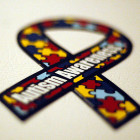
Day Two: John Jay Juvenile Justice Conference
|
NEW YORK – The John Jay College of Criminal Justice’s Center on Media, Crime and Justice is holding a two-day conference for journalists on its campus in New York Monday and Tuesday. While the conference, Kids Behind Bars, Where’s the Justice in America’s Juvenile Justice System?, is primarily meant for journalists, many of the topics will be of interest not only to those in the field, but the general public as well. JJIE/Youth Today’s John Fleming and Clay Duda are attending the conference and continue their reporting today. For Day One coverage head over to our post here. DAY TWO
Panel One:
Mike Bocian, provided the keynote address Tuesday morning.








